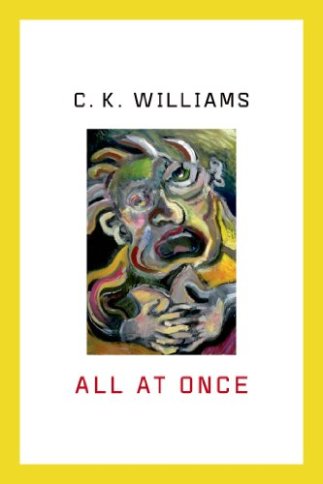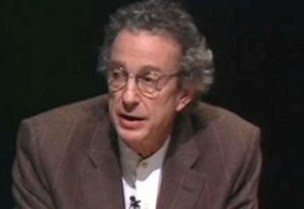Books: In All at Once poet C.K. Williams turns to prose
More than two decades ago a creative writing grad school classmate related how a prospective employer told her she would not get the publishing job for which she had applied, because "poets can't write prose." If prose memoirs by poets such as
Mary Karr had not already disproved that canard,
All at Once, poet C.K Williams' new book of short prose pieces, surely would.
During the middle decades of Williams' poetic oeuvre he used very long lines, lines so long that perhaps it's not that much of a stretch for him to dispense with line breaks entirely in All at Once and switch to prose (after all, novelist
David Albahari has shown that paragraph breaks are also dispensable). On the other hand, it might be an interesting creative writing exercise to put line breaks into Williams' prose in
All at Once.
There is no consensus on what defines or how to write a prose poem, nor on whether to emphasize the prose or the poetry. In the 19th Century French symbolist poets wrote poetic prose pieces featuring a lyrical voice and poetic imagery. That approach was also favored by the late American writer
Carol Novack, the founder of
Mad Hatters Review. OTOH, prose poets such as
Phyllis Koestenbaummake the prose in her prose poems as prosy as possible. Williams uses both approaches in the varied pieces that comprise
All at Once, some of which seem more like essays.
In my
New York Journal of Books review of
All at Once I write, "It is probably not fair to compare C. K. Williams’ prose in
All at Once with his award winning verse poetry books, but it does offer poetry averse readers an opportunity to engage with a perceptive and empathic wordsmith whose work they otherwise would not encounter." See that review for a fuller discussion of the book.


No comments:
Post a Comment